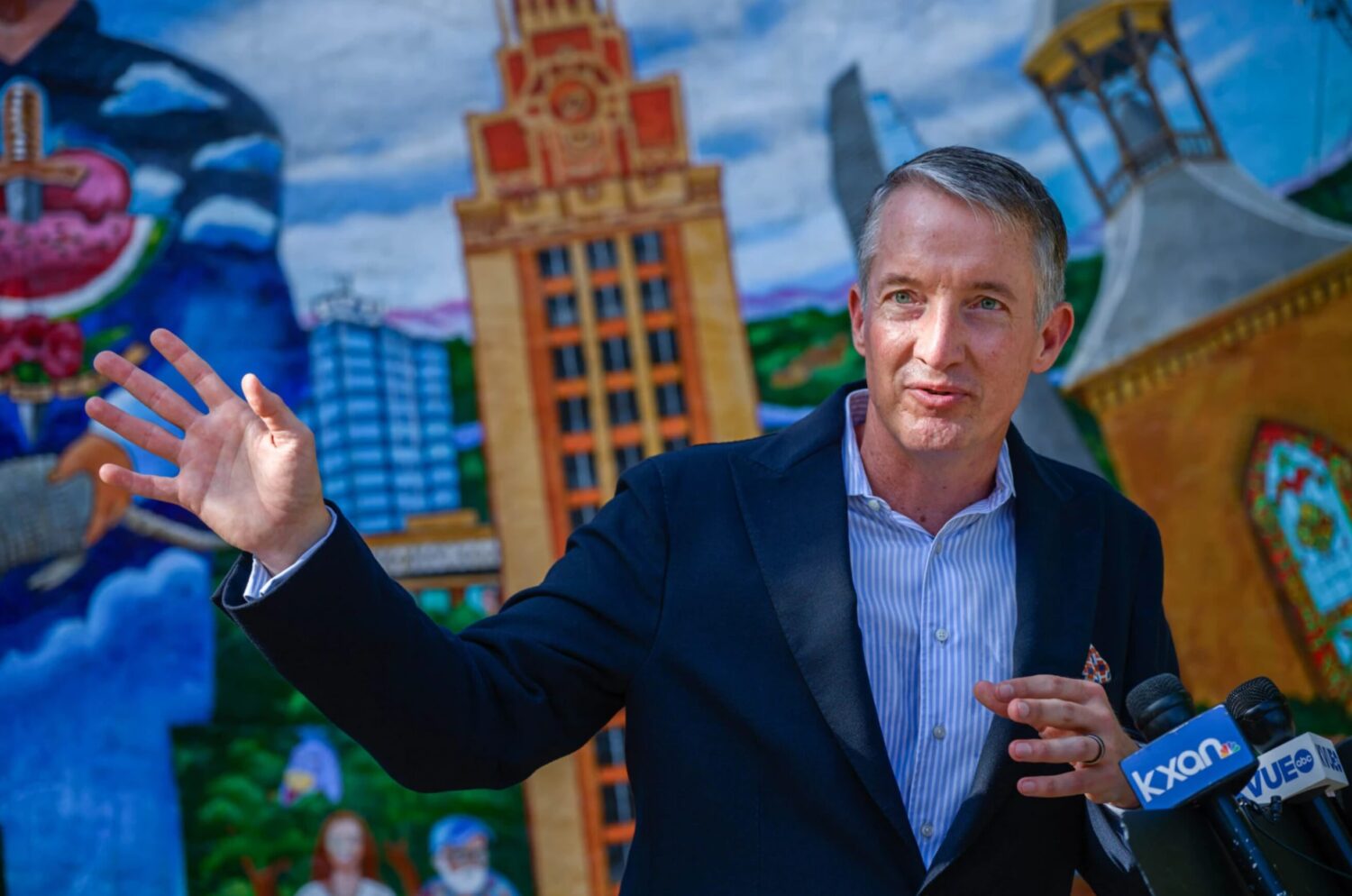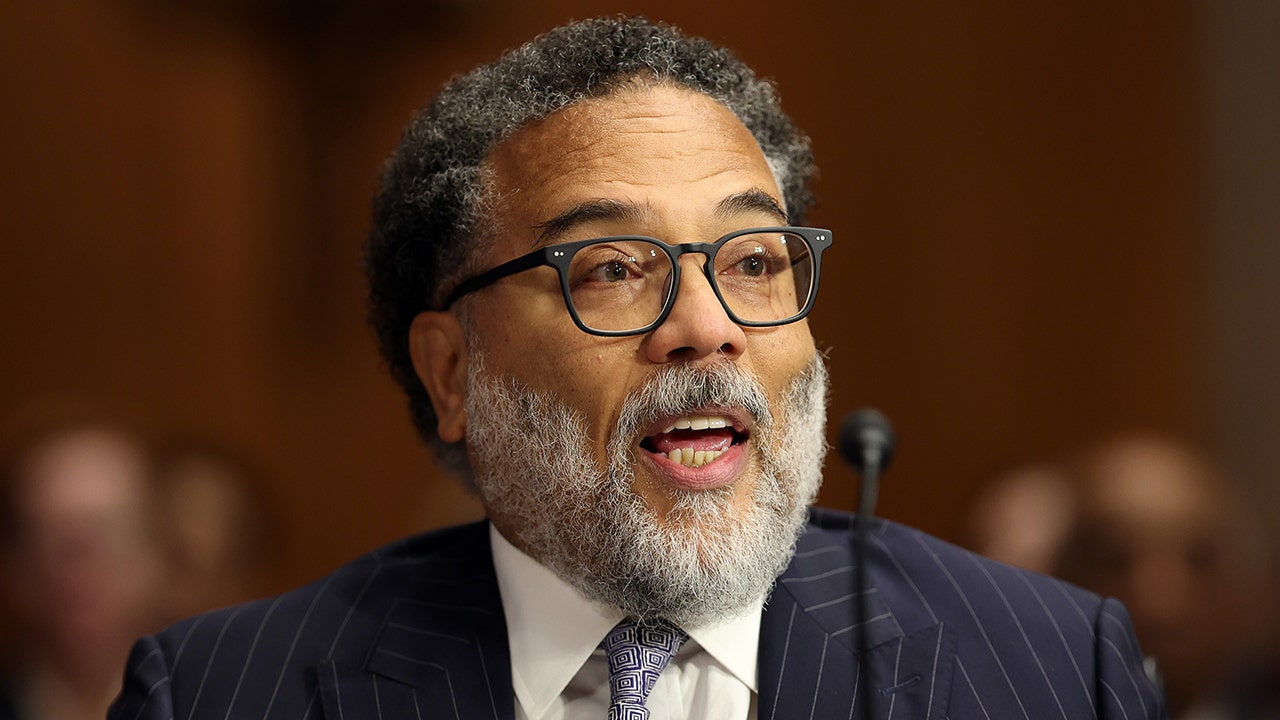Education
White House Counsel Stepping Down as Biden Team Prepares for Election Run

Stuart Delery, the White House counsel who has helped usher in some of President Biden’s most important policies while defending him against Republican attacks, announced on Thursday that he plans to step down as the West Wing shapes its staff for the final 15-month sprint to next year’s election.
Mr. Delery had indicated to colleagues a few months ago that he would be ready to leave by fall after nearly three years in the White House and the pre-inaugural transition that have been all consuming. Since Republicans took over the House in January, the counsel’s office has been the command post for the White House’s response to a multitude of congressional investigations.
No successor was named on Thursday, but a new counsel was expected to be in place by the time Mr. Delery formally leaves next month. Jeffrey D. Zients, the White House chief of staff who took over the president’s team six months ago, has asked cabinet secretaries to decide in the coming weeks whether they plan to depart or will commit to staying through the November 2024 election to avoid distracting confirmations heading into the campaign season.
Mr. Biden’s White House team has been steadier than most, especially compared with the one under his predecessor, former President Donald J. Trump, who burned through aides at a frenetic pace. Although a number of top officials have left Mr. Biden’s administration, the total turnover of 56 percent remains below the modern average, and his cabinet is the most stable going back at least seven administrations, according to figures compiled by the Brookings Institution.
Susan E. Rice, the president’s domestic policy adviser, left in May and was replaced by Neera Tanden, the staff secretary, who in turn was replaced by Stefanie Feldman, a longtime Biden aide. Julie Chávez Rodríguez stepped down as director of intergovernmental affairs to take over as campaign manager and was succeeded by Tom Perez, a former labor secretary. Louisa Terrell, the director of legislative affairs who helped coordinate debt ceiling negotiations, announced her departure last month and was replaced by Shuwanza Goff, the president’s liaison to the House.
But the president’s core inner circle of Mr. Zients and advisers like Steven J. Ricchetti, Anita Dunn, Jennifer O’Malley Dillon and Bruce Reed is expected to remain intact through the election, as is his top national security team led by Jake Sullivan and his deputy, Jon Finer.
Some colleagues have speculated about whether Michael Donilon, one of Mr. Biden’s closest advisers and the author of many of his major speeches, will move over to the campaign or stay inside the White House.
Mr. Delery, 54, served as acting associate attorney general, the No. 3 official at the Justice Department, under President Barack Obama and joined the Biden team as deputy White House counsel before taking over the top legal job in the White House a little over a year ago. He is the first openly gay man to serve as counsel to the president.
“Stuart Delery has been a trusted adviser and a constant source of innovative legal thinking since Day 1 of my administration,” Mr. Biden said in a statement.
Mr. Delery, a low-key and studious Yale Law School graduate, was among the legal architects of some of Mr. Biden’s most important initiatives, including strategies to distribute Covid-19 vaccines, to forgive hundreds of billions of dollars of student debt and to revamp immigration after the expiration of Title 42, a pandemic-era measure.
When the Supreme Court overruled the president’s original student loan plan, his team quickly developed new ways to try to accomplish the same goals. When Republicans threatened to not raise the debt ceiling, Mr. Delery developed options for Mr. Biden to do so on his own authority, although it proved unnecessary when a bipartisan deal was struck.
Mr. Delery also oversaw a drive to install as many judges as possible. During his tenure, 20 nominees were confirmed to federal appeals courts and 51 to federal district courts. The slate of new judges has been the most diverse in history.
“Stuart Delery was a historic counsel for an administration getting historic things done,” Mr. Zients said in a statement. “His work in support of President Biden and Vice President Harris will shape the country for the better for decades to come.”

Education
Video: Several Killed in Wisconsin School Shooting, Including Juvenile Suspect

new video loaded: Several Killed in Wisconsin School Shooting, Including Juvenile Suspect
transcript
transcript
Several Killed in Wisconsin School Shooting, Including Juvenile Suspect
The police responded to a shooting at a private Christian school in Madison, Wis., on Monday.
-
Around 10:57 a.m., our officers were responding to a call of an active shooter at the Abundant Life Christian School here in Madison. When officers arrived, they found multiple victims suffering from gunshot wounds. Officers located a juvenile who they believe was responsible for this deceased in the building. I’m feeling a little dismayed now, so close to Christmas. Every child, every person in that building is a victim and will be a victim forever. These types of trauma don’t just go away.
Recent episodes in Guns & Gun Violence
Education
Video: Biden Apologizes for U.S. Mistreatment of Native American Children

new video loaded: Biden Apologizes for U.S. Mistreatment of Native American Children
transcript
transcript
Biden Apologizes for U.S. Mistreatment of Native American Children
President Biden offered a formal apology on Friday on behalf of the U.S. government for the abuse of Native American children from the early 1800s to the late 1960s.
-
The Federal government has never, never formally apologized for what happened until today. I formally apologize. It’s long, long, long overdue. Quite frankly, there’s no excuse that this apology took 50 years to make. I know no apology can or will make up for what was lost during the darkness of the federal boarding school policy. But today, we’re finally moving forward into the light.
Recent episodes in Politics
Education
Video: Los Angeles Bus Hijacked at Gunpoint

new video loaded: Los Angeles Bus Hijacked at Gunpoint
transcript
transcript
Los Angeles Bus Hijacked at Gunpoint
The person suspected of hijacking a bus which killed one person, was taken into custody after an hourlong pursuit by the Los Angeles Police Department early Wednesday morning.
-
“Get him.”
Recent episodes in Guns & Gun Violence
-

 Business7 days ago
Business7 days agoThese are the top 7 issues facing the struggling restaurant industry in 2025
-

 Culture7 days ago
Culture7 days agoThe 25 worst losses in college football history, including Baylor’s 2024 entry at Colorado
-

 Sports6 days ago
Sports6 days agoThe top out-of-contract players available as free transfers: Kimmich, De Bruyne, Van Dijk…
-

 Politics5 days ago
Politics5 days agoNew Orleans attacker had 'remote detonator' for explosives in French Quarter, Biden says
-

 Politics5 days ago
Politics5 days agoCarter's judicial picks reshaped the federal bench across the country
-

 Politics3 days ago
Politics3 days agoWho Are the Recipients of the Presidential Medal of Freedom?
-

 Health2 days ago
Health2 days agoOzempic ‘microdosing’ is the new weight-loss trend: Should you try it?
-

 World7 days ago
World7 days agoIvory Coast says French troops to leave country after decades













